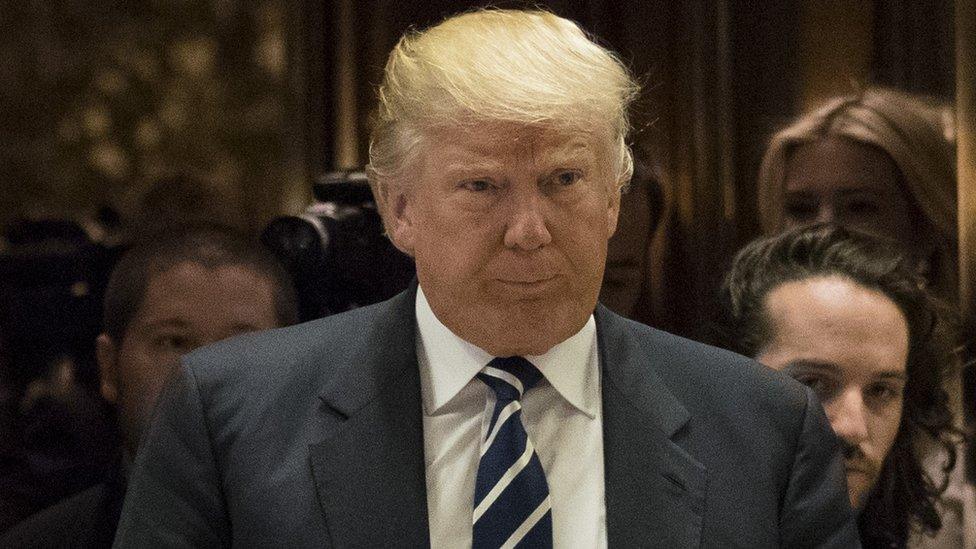Austria scandal: Mystery of the honey-trap video
- Published
The video, from, 2017, was recorded in a villa in Ibiza
It was a warm, summer night at a luxury villa in Ibiza.
For dinner, there was sea bass carpaccio and tuna tartare, with champagne, vodka and lots of Red Bull, one of the favourite drinks of far-right Austrian politician Heinz-Christian Strache.
He had come to the villa to meet an elegant woman in a black designer dress and high heels, who said she was Alyona Makarova, the wealthy niece of the Russian oligarch Igor Makarov.
Mr Strache was excited, not just because of the woman, whom he described as "hot", but also because of her apparent proposals of support for his far-right Freedom party, in return for shady deals.
But Mr Makarov doesn't have a niece.
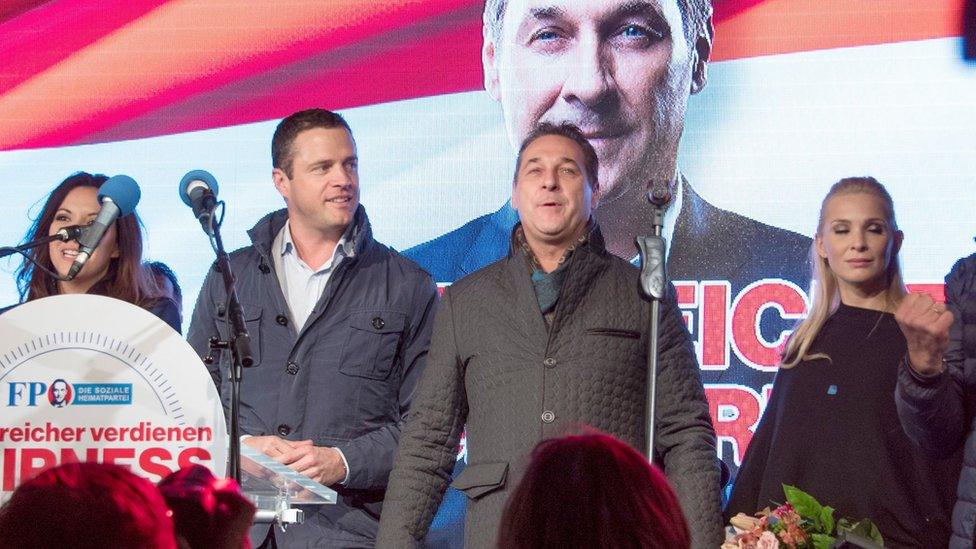
Mr Strache (Centre R) was joined in the Ibiza villa by parliamentary group leader Johann Gudenus (2nd from L)
The whole evening in July 2017, complete with the Mercedes Maybach and BMW M4 sports car, was an elaborate trap, which Mr Strache fell for, hook, line and sinker.
It was all secretly filmed, in what seems to have been an elaborately prepared and well-funded sting operation.
Last week it was published by two German newspapers, Süddeutsche Zeitung and Der Spiegel.
Süddeutsche Zeitung said hidden cameras and microphones were installed in light switches and in a mobile phone-charging station at the villa.
The microphones "recorded almost every word spoken" during the meeting which lasted almost seven hours, the paper said.
The scandal that followed the publication of the "Ibiza-gate" video saw not only the resignation of Mr Strache as vice-chancellor, but the collapse of Austria's coalition government, made up of the Freedom Party and the conservatives led by Chancellor Sebastian Kurz.
Who was behind the video sting?
In Austria, there is much speculation, but no concrete answers.
Neither Süddeutsche Zeitung nor Der Spiegel have revealed who they got it from.
In his resignation speech, Mr Strache said he had been the victim of "a deliberate political attack". The video, he said, was "a honey trap, directed by intelligence agencies".
But he didn't specify which secret services he suspected. And he also alluded to a controversial Israeli spin doctor, Tal Silberstein, who has links to the centre-left opposition Social Democrats in Austria, and to German satirist Jan Böhmermann.
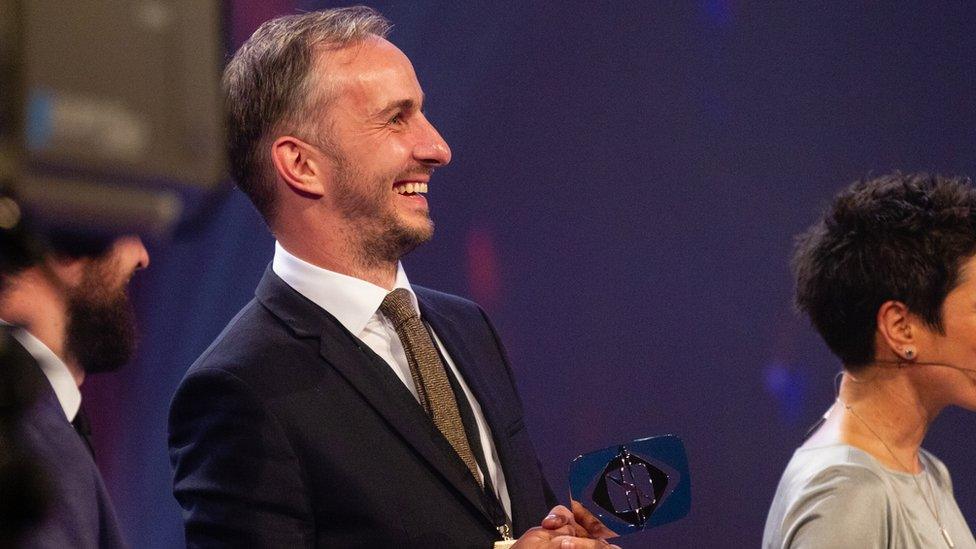
At an awards ceremony last month, Jan Böhmermann made references to several aspects of the video
Mr Silberstein has condemned Mr Strache's "false and baseless accusations" as an attempt to distract the public from the scandal.
Back in April, Mr Böhmermann referred to "FPÖ business friends in a Russian oligarch villa on Ibiza" at an awards ceremony, weeks before the video was published.
The satirist's manager says he knew about the video but was not offered it.
Could Russia be involved?
There is speculation about possible connections with Russia, given the fact that the woman in the video sting was posing as a Russian oligarch's niece.
The Kremlin has denied having anything to do with the video.
Analysts here say it would be strange if the Russian government was behind it, as it has traditionally had strong, cordial relations with the Freedom Party, which has a co-operation agreement with President Vladimir Putin's United Russia Party.
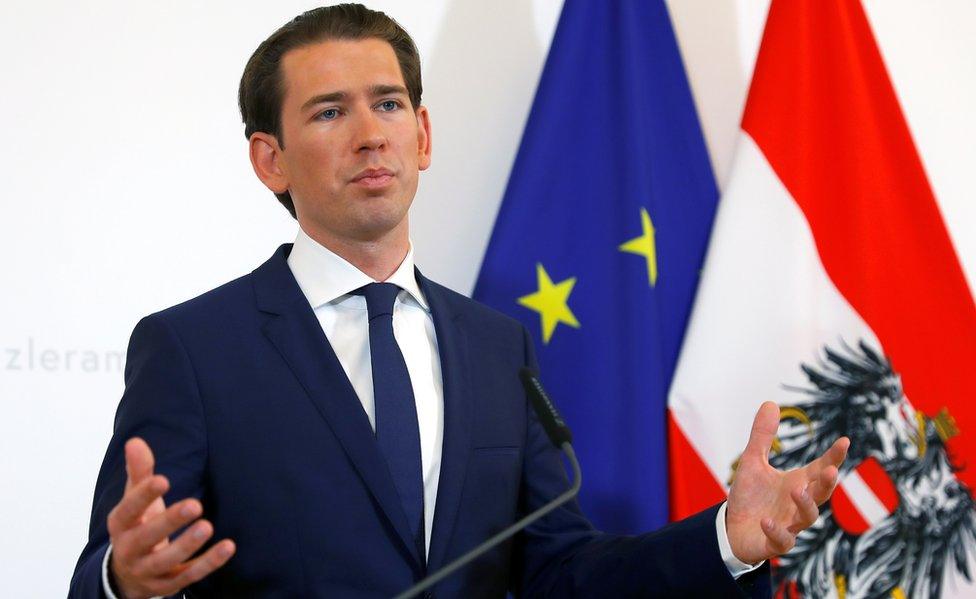
The departure of Chancellor Sebastian Kurz's far-right ministers prompted the collapse of his coalition government
They suggest it may have been fears of Russian influence in Austrian and European politics that sparked the release of the video, just ahead of the European elections in which nationalist parties are expected to make gains.
Some European intelligence agencies have reportedly been reluctant to share information with Austria, with the Russia-friendly Freedom Party at the helm.
But why has the footage - shot in 2017 - only surfaced now? Rumours of the tape have circulated for months.
Some suggest that it may have had nothing to do with foreign interference and is an internal Austrian affair; a political or personal vendetta, perhaps.
Others think that it could possibly be some kind of mafia revenge. But this is all speculation.
Austrian media have published stories about a lawyer and a detective from Vienna who may possibly have been instrumental in the sting.
The identity and motives of those behind the video, and the reasons for its release now, remain a mystery.
- Published17 November 2018
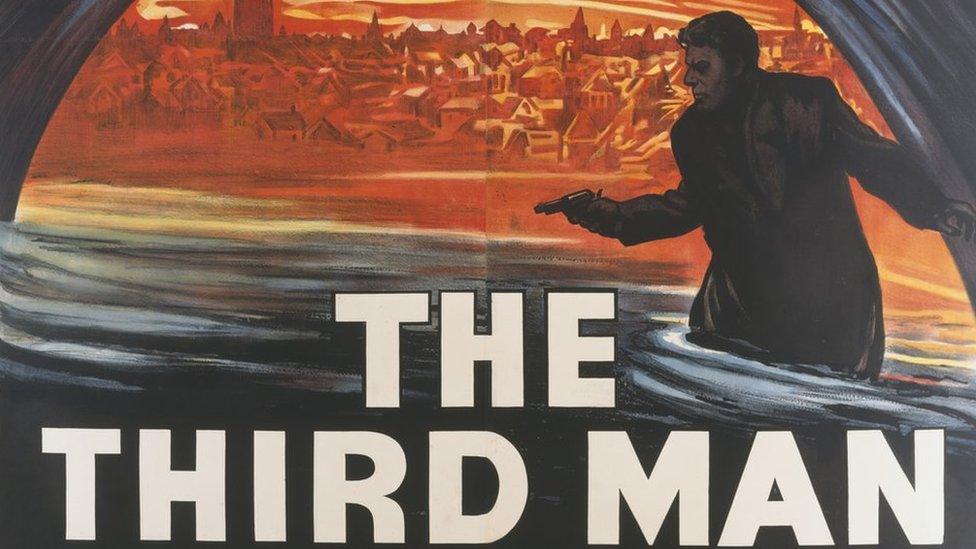
- Published14 January 2017
